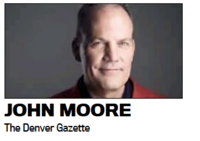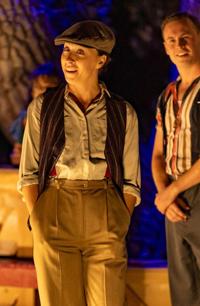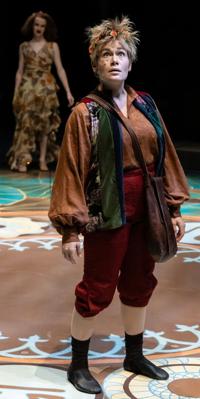Where there is a Will, there is a woman | John Moore
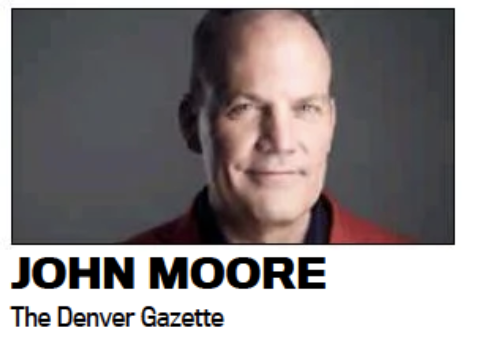

It’s been a rough, oh, four centuries for Shakespeare’s women. But local stage directors flipped the script in 2023, making it a remarkable year – if not for the Bard’s characters, then certainly for the women performing them.
It began with Local Theater Company culminating a three-year creative project that imagined Lady Macbeth in the afterlife and on trial for her part in her husband’s bloody crime spree. “Undone: The Lady M Project” gave audiences a chance to consider whether Macbeth’s enigmatic, nameless wife is indeed a power-hungry manipulator who goaded her husband into murder, or simply a loyal partner using the only tool available to a woman in those patriarchal times – her man.
No matter how you feel about Lady M – the urban dictionary calls her no less than “the female incarnation of Evil Itself” – ”Undone” gave audiences a chance to see actor Anne Penner, a precise theatrical tactician and acting professor, at the very top of her game.
Off-stage, Penner screwed the you-know-what to the sticking place when she pointed out:
“There are too many female characters in Shakespeare plays who would certainly have a lot more to say about what they’re going through than Shakespeare gives them words and stage time to express.”
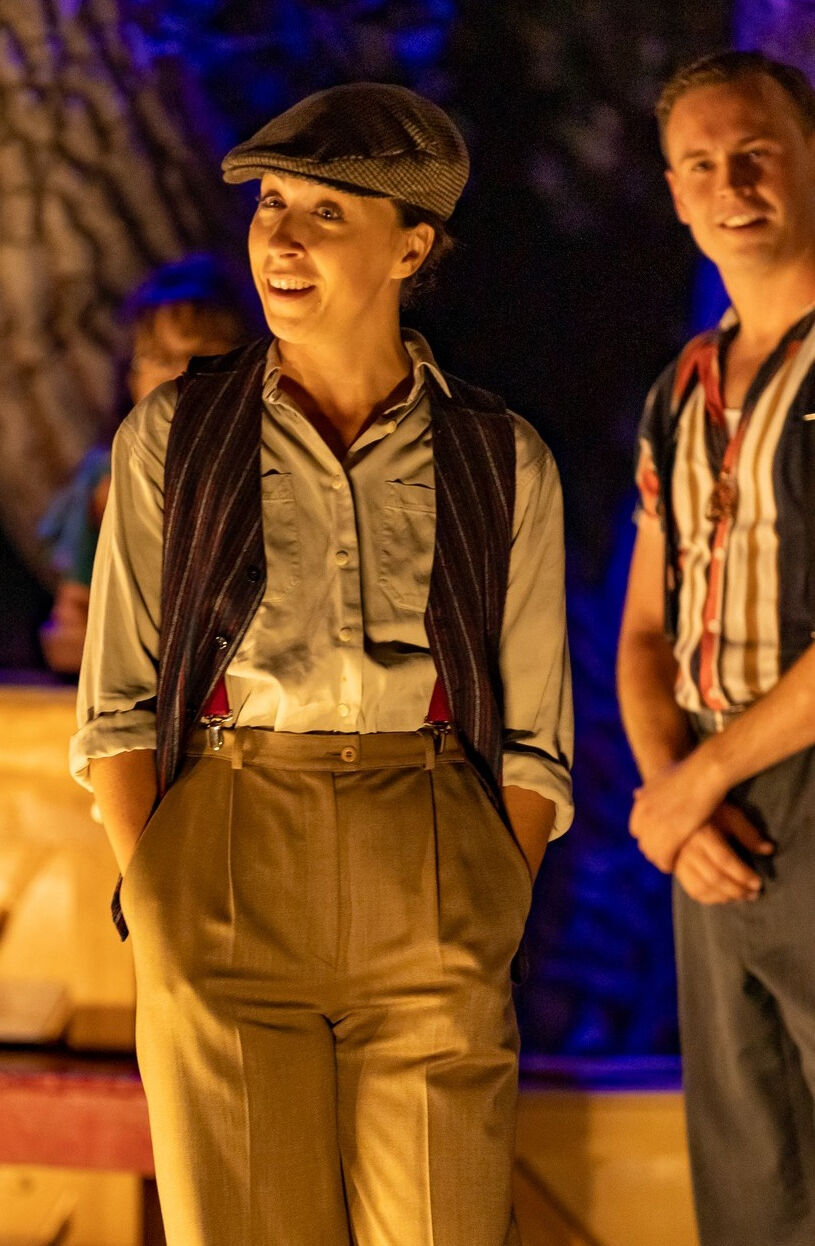
In "As You Like It," it takes being banished to the forest and having to disguise yourself as a man for a woman (Rosalind, played here by Shannon Altner for Shakespeare in the Wild in the summer of 2023) to take top billing in a Shakespeare play. Behind is Micah Conway as Orlando.
Shakesepare in the Wild/Yellow Banana Photography

In “As You Like It,” it takes being banished to the forest and having to disguise yourself as a man for a woman (Rosalind, played here by Shannon Altner for Shakespeare in the Wild in the summer of 2023) to take top billing in a Shakespeare play. Behind is Micah Conway as Orlando.
A professional company called Shakespeare in the Wild was the exception to the rule when it ceded its picturesque summer stage to the resourceful, shabbily exiled Rosalind – the largest female role in Shakespeare’s canon (played by Shannon Altner) in “As You Like It” performed in a pastoral field near the Goodson Recreation Center in Centennial. The disability-affirmative Phamaly Theatre Company allowed Shakespeare’s emphatically androgynous sprite Puck to own the Denver Center stage in “A Midsummer Night’s Dream” through the confident embodiment of actor Emma Maxfield.
Elsewhere, two major Colorado companies allowed audiences to reconsider quintessential Shakespearean patriarchs as they were re-interpreted, in very different ways, by women.
In Boulder, the Colorado Shakespeare Festival gave audiences a fresh look at the madness of “King Lear” by bringing in nationally celebrated actor Ellen McLaughlin to play the addled ruler. She made it clear she would be playing Lear as he is – a man. One inescapably embodied on this stage by a female body.
“This is not going to be about what happens when women get power,” McLaughlin said. “This is a play about patriarchy. It’s about fathers and daughters, and fathers and sons. It was very clear: I’m playing a king.”
The blustering old fool, of course, sends the story off the rails in the very first scene, when he dumbly decides to divide his kingdom between his three daughters – not based on how they have demonstrated their love for him over their lifetimes, but rather on who can convince him they most love him now, at age 80. It’s a grotesque game the virtuous Cordelia refuses to play, and she is soon cut off because of it. But the wicked, mendacious Regan and Goneril gleefully strip their pop of his wealth, his dignity, his identity and, eventually, his sanity.
The words remained the same, but there was something far more ugly about seeing these scenes play out entirely among women. It certainly magnified our organic sympathy for the principled Cordelia. Also the abject hideousness at play by the conniving twin pillars of sisterly evil, performed to full delicious cruelty by Anastasia Davison and Jessica Robblee. There was just something so much more awful about watching these two destroy a father who, to us, is equal parts mother. And yet, in the complete absence of men, they only served to underscore the historic, generational awfulness of men.
And it was an acting clinic put on by four superb actors. The rock-solid Shunté Lofton, in particular, is easily one of the best Shakespearean actors ever to trod the Mary Rippon Amphitheatre boards.
“I think what all four of these specific women bring is a relentless pursuit of specificity in their work,” said director Carolyn Howarth. “They never stop exploring, never stop working, never stop discovering. I know the term “consummate professional” is thrown around a lot … but it is so apt in the description of each of them.”
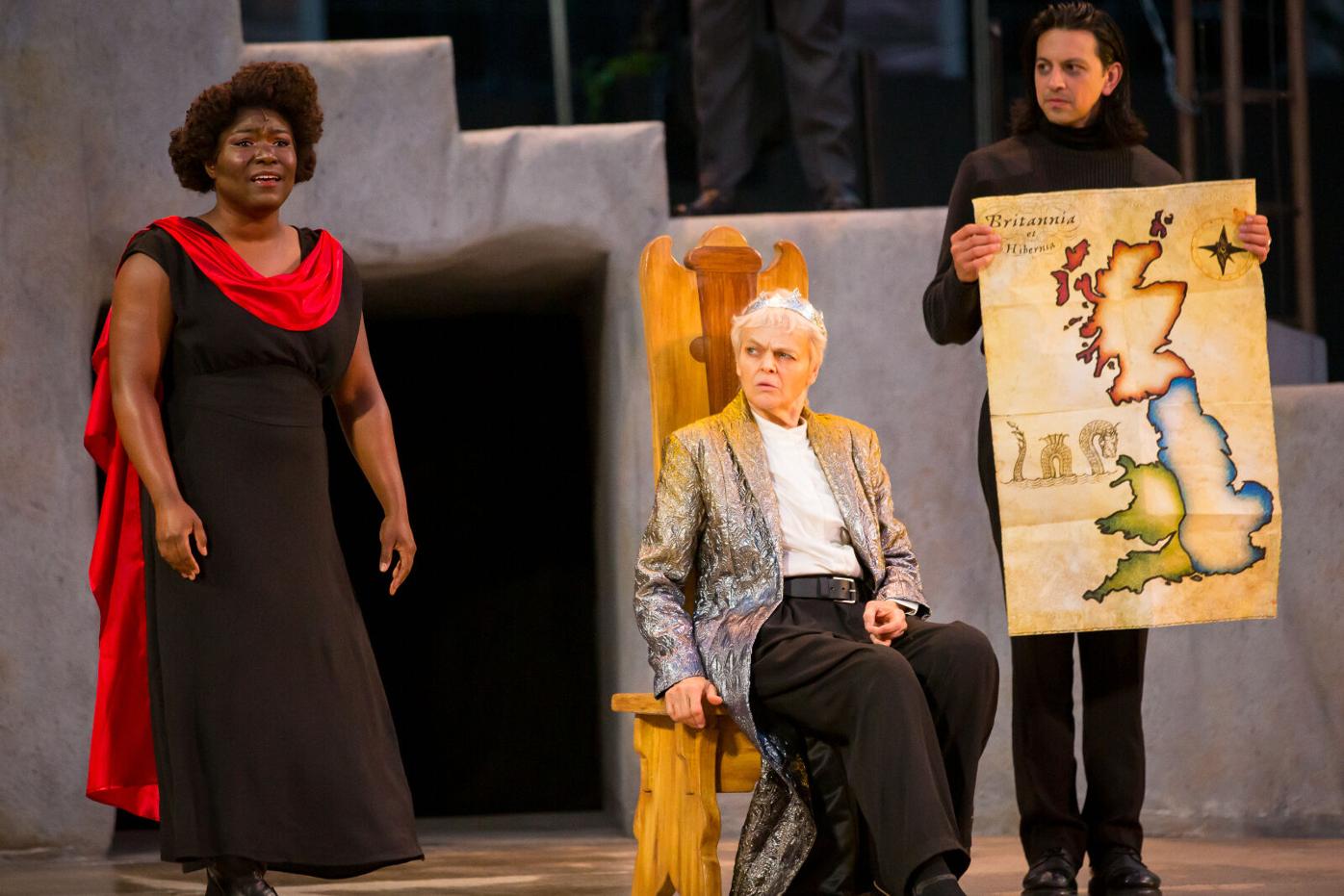
Poor, honest Cordelia (Shunté Lofton), left, has to be wondering what in the (bleep) is going on when her father (Ellen McLaughlin) puts his daughters through an insincere loyalty test with big stakes in the Colorado Shakespeare Festival's 2023 "King Lear."
Jennifer M. Koskinen/Colorado Shakespeare Festival

Poor, honest Cordelia (Shunté Lofton), left, has to be wondering what in the (bleep) is going on when her father (Ellen McLaughlin) puts his daughters through an insincere loyalty test with big stakes in the Colorado Shakespeare Festival’s 2023 “King Lear.”
In time, the 2023 Colorado theater year may be most remembered for McLaughlin’s performance as Lear, which sparked memories of olden days when famous and soon-to-be famous actors regularly joined the Colorado Shakespeare Festival for a summer. McLaughlin wouldn’t have missed it for the world.
“This is the part I’ve spent my entire professional life preparing to do,” she said. “It’s why you become an actor – to embody people like this. I’m sure anybody who’s ever gotten a shot at it, from Anthony Hopkins to Laurence Olivier, has felt the same way. You’re old enough by the time you get to do it to appreciate how hard it is, and what an extraordinary opportunity it is.”
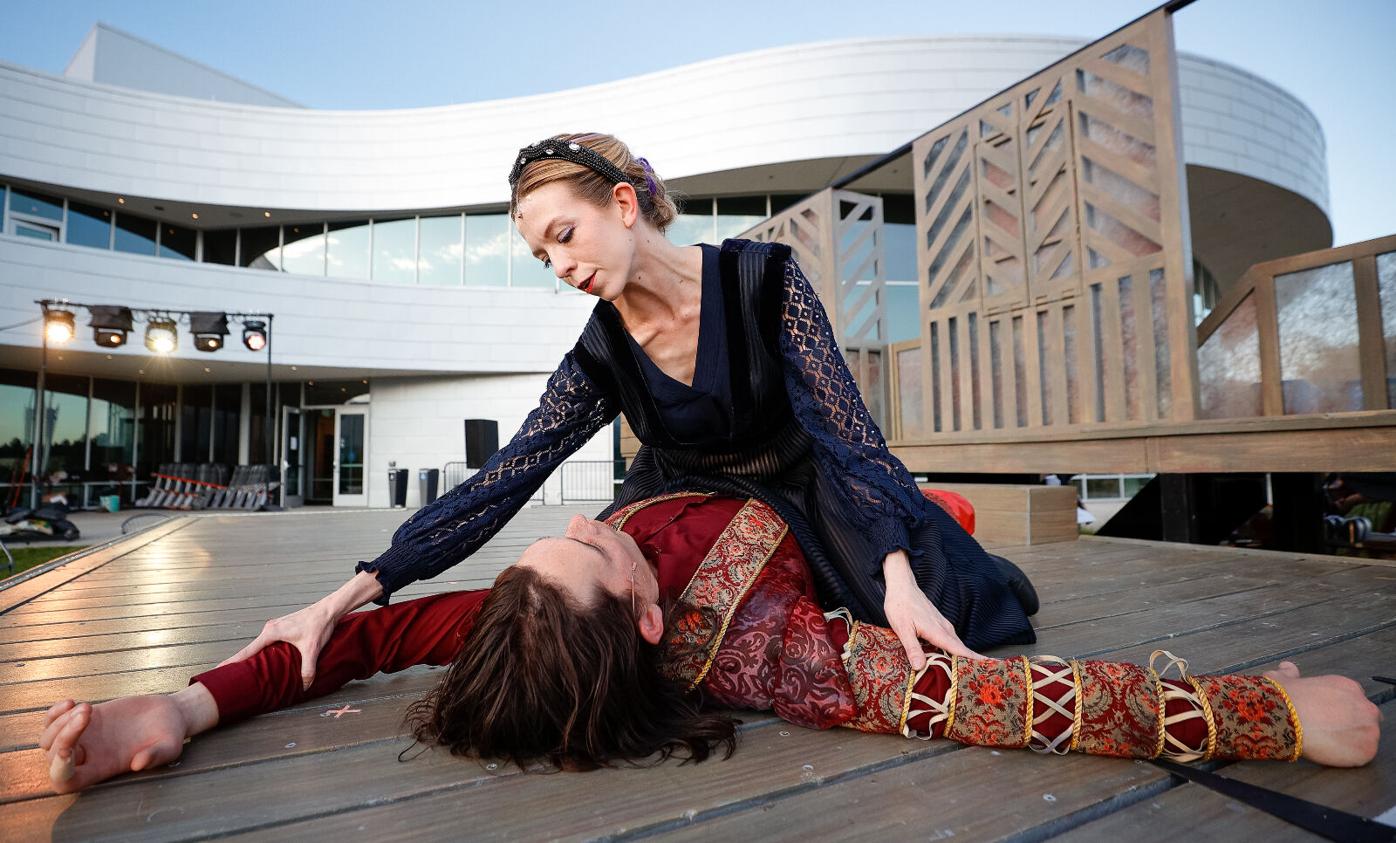
In Theatreworks' 2023 "Taming of the Shrew, directed by Caitlin Lowans, Annie Barbour played Petruchia (not Petruchio), and the unmarrying kind Kate (still named Kate!) was played and Ian Michael Minh.
Isaiah Downing/Theatreworks

In Theatreworks’ 2023 “Taming of the Shrew, directed by Caitlin Lowans, Annie Barbour played Petruchia (not Petruchio), and the unmarrying kind Kate (still named Kate!) was played and Ian Michael Minh.
But perhaps the most compelling example of the contemporary power of Shakespearean women in 2023 was a gender-swapped version of “Taming of the Shrew” staged by Caitlin Lowans for Colorado Springs’ Theatreworks. Inspired by a Royal Shakespeare Company conceit, Lowans posited a world in which all of the people with power were women, and all of those who had to fit themselves to the will of other people were men. So here, the domineering male woman-tamer was instead a dominating female man-tamer precisely played here by the illuminating Annie Barbour.
It was the climatic, ever-controversial “taming” scene that brought it all home for Lowans.
“Usually in that scene, the physical power – and often the physical size of the masculine character – are part of the control of the scene,” she said. “Annie obviously didn’t have physical access to that size. But yet it was the most powerful, dominant moment that I have seen on stage in a very long time. That was entirely through Annie’s combination of juicing the words, and her incredible watchfulness and generosity as a scene partner.”
While Lowans’ theatrical exploration rather funnily laid bare the general stupidity of men, this whole exercise was not, she emphasized, meant to fantasize or endorse a world where women are on top.
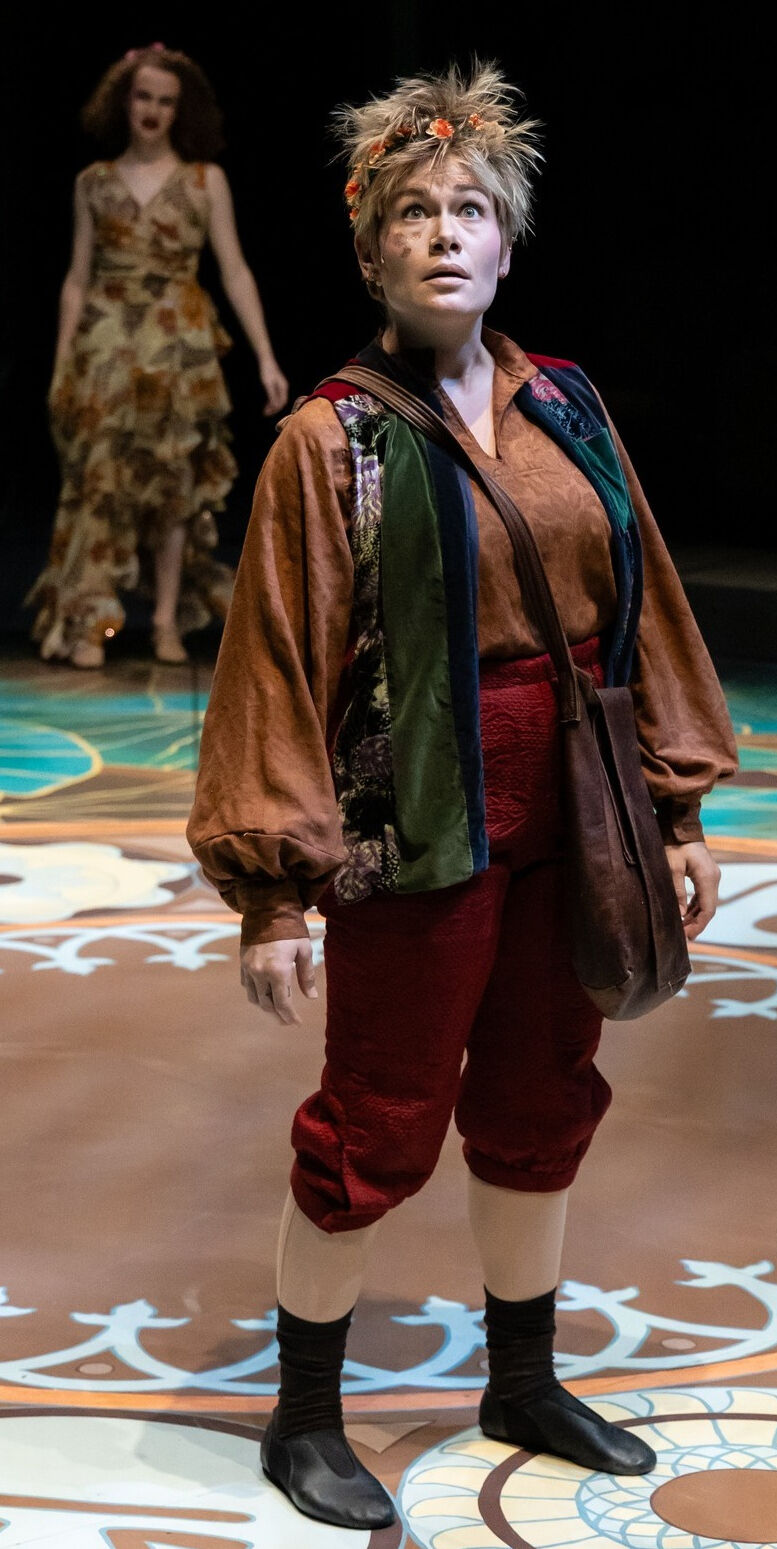
Emma Maxfield played Puck, perhaps the only major character in Shakespeare's canon who is never even mentioned by pronoun, in "A Midsummer Night's Dream" on the Denver Center's Wolf Theatre stage.
Phamaly Theatre Company/RDG Photography

Emma Maxfield played Puck, perhaps the only major character in Shakespeare’s canon who is never even mentioned by pronoun, in “A Midsummer Night’s Dream” on the Denver Center’s Wolf Theatre stage.
“What we were trying to highlight is that we do not get the world we want by replacing one dominant ideology and hierarchical power structure with another type of dominant person at the top,” she said. “Just girl-bossing our way through the patriarchy is not going to cut it.”
To Lowans, all of this community-wide gender exploration and reinterpretation in 2023 is part of what keeps Shakespeare’s words alive and relevant. Just as racism is inherently a problem that only racists can fix, the battle against misogyny, she said, “is most usefully served by those who benefit from its structures interrogating how those structures are embodied – in this case on stage.”
For Howarth, this is all part of a larger change vision. “One of the things that gives me great pleasure is seeing women playing roles they are not traditionally cast to play,” she said. “It is both my passion and my goal to give women more opportunities in classical theater.”
Note: The True West Awards, now in their 23rd year, began as the Denver Post Ovation Awards in 2001. Denver Gazette Senior Arts Journalist John Moore celebrates the Colorado theater community by revisiting 30 good stories from the past year without categories or nominations.
John Moore is the Denver Gazette’s senior arts journalist. Email him at john.moore@denvergazette.com





